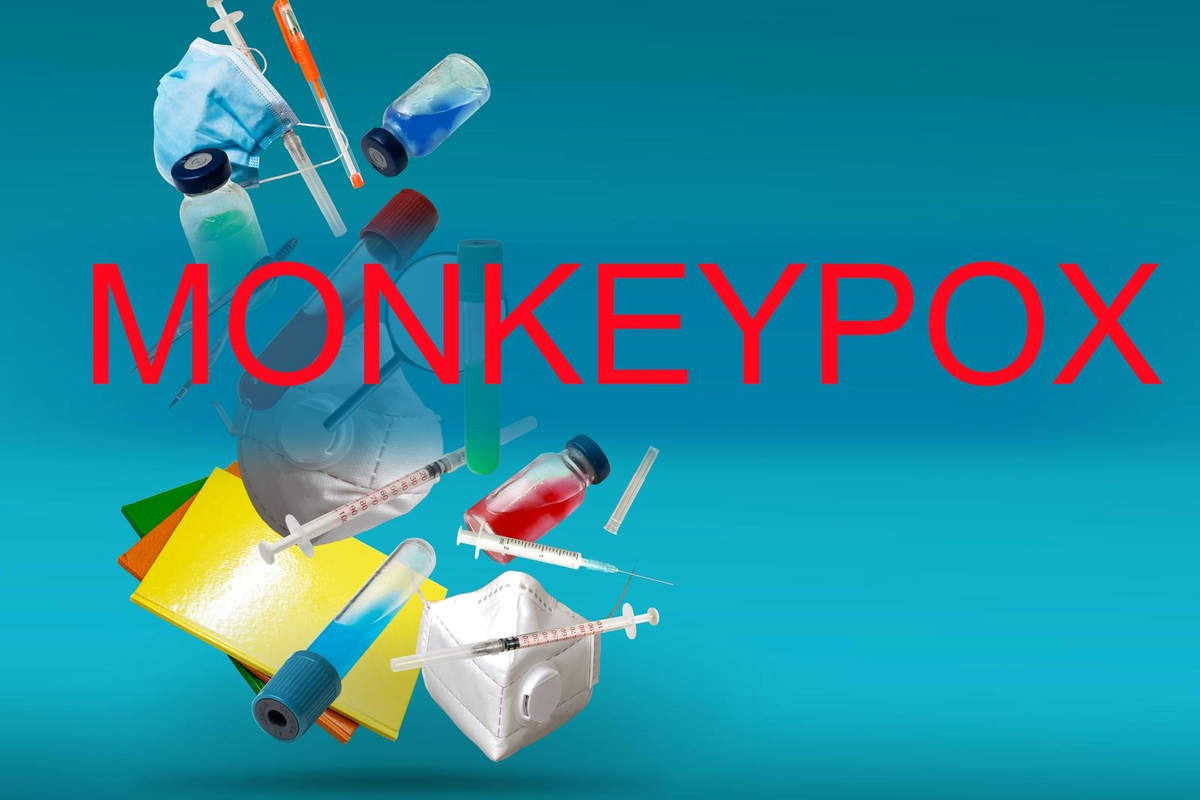But where does this monkeypox come from that worries the health authorities so much? Could one of the anti-Covid vaccines using a chimpanzee adenovirus be the cause ?
The World Health Organization (WHO) warned on Friday that the 200 or so cases of monkeypox detected in recent weeks, “in countries where the virus does not usually circulate, could be just the tip of the iceberg” according to Sylvie Briand, director of the WHO’s Global Preparedness Department.
These words, coming from the world’s leading health authority, are cause for concern. Where does this virus come from? Why is it suddenly appearing in several countries around the world ?
A chimpanzee adenovirus
The answer may lie in making a vaccine against Covid. This is what the Brazilian Ministry of Economy’s Covid-19 Technology Observatory says. Several authors (Cristina d’Durso de Souza Mendes, Priscila Rohem dos Santos, Silvia Oliveira, Contributor: Irene von der Weid) have researched vaccine patents.
And, in particular, the ChAdOx1-S vaccine, also known as AZD1222, Covishield or Vaxzevria, which was developed by the University of Oxford in partnership with AstraZeneca. This vaccine was based on a chimpanzee adenovirus serotype Y25, which was modified by recombinant DNA technology using an Escherichia coli bacteriophage λ to replace the sequences in the E4, orf4, orf6, and orf6/7 region, with those of the human adenovirus HAdV-5, giving rise to the nonreplicating viral vector ChAdY25-E, renamed ChAdOx1.
It is a bit complicated for the layman, but we understand that the AZ vaccine is based on a chimpanzee adenovirus -certainly different in its structure from the monkey pox virus- but modified. Why is it modified ?
Vaccine performance
Because it uses a virus to which humans are not naturally exposed as a platform, the ChAdOx1 viral vector reduces the possibility that immunity to the vector will diminish vaccine performance.
The ChAdOx1 vector has already been used in vaccine candidates for several infectious diseases (malaria, human immunodeficiency virus (HIV), tuberculosis, influenza, hepatitis C, respiratory syncytial virus (RSV), and Ebola), including a potential vaccine for MERS (Middle East Respiratory Syndrome) coronavirus, which is in early clinical testing.
Approved by the European Medicines Agency (EMA)
These developers have also filed patents describing the use of viral vector technology for gene therapy of cancer, certain autoimmune diseases or neurological diseases.
In the COVID-19 vaccine, the ChAdOx1 viral vector was modified to express the SARS-CoV-2 glycoprotein Spike (S): a complete sequence, modified to optimize codons, connected to a tissue plasminogen activator (tPA) leader sequence. [ChAdOx1 was found to be safe and immunogenic, capable of generating a cellular and humoral immune response against SARS-CoV-2 virus, and a booster dose to increase neutralizing antibody titers is required, showing 70% efficacy in phase III clinical trials].
Multi-center Phase III and IV clinical trials are currently underway. Also in late 2020, the vaccine was approved for emergency use in the United Kingdom, and soon after was approved by the European Medicines Agency (EMA).
Presence of thrombosis
In Brazil, the emergency use of AZD1222 vaccine by the Brazilian Health Surveillance Agency, ANVISA, was approved in January 2021, at the request of Fundação Oswaldo Cruz, an institution that has established an agreement with the vaccine developers for the production and technology transfer of the vaccine.
The vaccine approved for use is applied by intramuscular injection in two doses. In March 2021, questions about the safety of the vaccine were raised due to the presence of thrombosis in some people, leading to the discontinuation of its use in some European countries.
The World Health Organization (WHO) issued a statement saying that the safety data would be reviewed with regulators, but also said it recommended continuing vaccinations on the basis that the benefits outweighed the risks.
Let’s hope that the so-called “regulatory agencies” don’t make their conclusions too late.
Why the current #monkeypox global situation deserves attention?
➡️ unusual number of cases in 22 non- endemic countries in few days
➡️ risk to have broader community transmission from imported cases
➡️ Vaccines and treatments are in limited quantities & to be used wisely— Dr Sylvie Briand (@SCBriand) May 26, 2022

